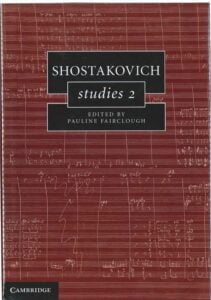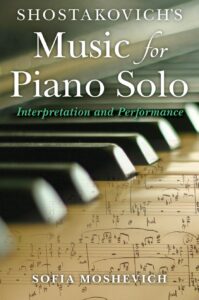Second Waltz – Dmitri Shostakovich (from Suite No. 2 for Jazz Orchestra) for piano solo (sheet music)

Shostakovich
Dmitri Dmitriyevich Shostakovich (25 September [12 September] 1906 – 9 August 1975), was a Soviet composer. His production covers all genres: opera, musical comedy, miniature symphony for piano, concert music, cantata, string quartet and music for the cinema.
Best Sheet Music download from our Library.
A prolific author, he wrote a total of 147 opus numbers, many of them corresponding to works that today are among the most performed and recorded pages of the repertoire.
However, despite being considered, along with Prokofiev, the most representative composer of the former Soviet Union, his career was not easy: prizes and decorations -among which were the State and Lenin Prizes and the distinction of Artist of the Pueblo-, alternated with continuous persecutions and condemnations by the same regime that laureated him, under the accusation of making excessively modern and anti-popular music.
All this left its mark on the style of his latest compositions, characterized by a bitter and gloomy tone, as well as a rawness that contrasts with the jovial and carefree spirit of the first ones.

Born into a family in which culture had an important place, Shostakovich received his first musical lessons from his mother, a professional pianist, at what can be considered a relatively late age, nine years old. Given his great progress, in 1919 he entered the Leningrad Conservatory, where he had Aleksandr Glazunov as his main teacher. Fatherless since 1922, Shostakovich continued his studies while, to support his family, he played in various movie theaters as an accompanying pianist.
Please, subscribe to our Library. Thank you!
The 1926 premiere of his surprising Symphony no. 1, written on the occasion of his graduation from the conservatory, immediately drew the attention of the musical world to him. Immediately subsequent works, such as the opera The Nose or the ballet The Golden Age, only confirmed the talent of a young composer especially gifted for satire.
Shostakovich’s upward career suffered an unexpected setback with the 1934 premiere of his second opera, Lady Macbeth of Mtsensk: enthusiastically received by the public, both in Leningrad and in its subsequent staging in Moscow, it was withdrawn from the bill after the appearance of a Criticism in the official newspaper Pravda, entitled Chaos instead of music, in which the composer was accused of having written a ‘howling concert’, alien to the assumptions of socialist music, which should be clearly and easily accessible.
Thus began a long and contradictory relationship with the Stalinist regime: while in the West he was considered the official Soviet composer, in his own country Shostakovich had to suffer interference from his cultural authorities, despite which, and despite his apparent acceptance of the precepts of socialist realism, he always managed to maintain his creative independence.
The premieres of the classical Symphony no. 5 and, above all, the patriotic Symphony no. 7 «Leningrad», a symbol of the struggle of the Russian people against the Nazi invader, rehabilitated a composer who in 1948 once again saw the execution of his works prohibited under the stigma of formalism.
After Stalin’s death in 1953, Shostakovich’s music became more personal, resulting in a long series of scores presided over by the idea of death. This is the case of the last three symphonies and his string quartets, a genre that the composer turned into the ideal medium in which to express his worries and fears in a private way, without the need to resort to masks or disguises.
His music, especially that of these later years, has considerably influenced that of his younger compatriots, such as Alfred Schnittke or Edison Denisov, among others.
